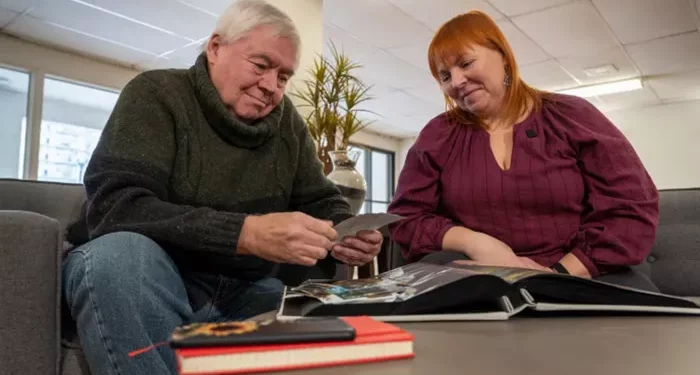As Canada prepares to reduce immigration, Ukrainian families are raising concerns about the status of their permanent residency applications. These families, who have sought refuge under a special humanitarian program designed to reunite loved ones fleeing the war, say they are receiving mixed messages and feel uncertain about Canada’s commitment to their cause.
Some applicants claim their applications have been “lost” by Immigration, Refugees and Citizenship Canada (IRCC), prompting doubts about Canada’s ongoing support for Ukrainians as the conflict continues.
Eugenia Pynchuk, a Canadian citizen, voiced her concerns while sitting next to her father. Her parents are currently in Ottawa on a visitor visa, which will expire next year. They left behind their dental manufacturing business in Kharkiv and applied for permanent residence under a new Ukrainian family reunification stream in January. The previous Canada-Ukraine Authorization for Emergency Travel (CUAET) program, which welcomed around 300,000 Ukrainians, ended in 2023.
The new permanent residency pathway, aimed at helping families reunite and supporting Ukrainians building new lives in Canada, opened in October 2023. However, data from September 2024 revealed that only 135 applications had been approved, with 17,438 still awaiting processing. In contrast, other humanitarian programs, including those for residents from Hong Kong and the Americas, processed thousands of applications in the same timeframe.
While IRCC did not provide updated numbers before the story’s deadline, they confirmed that, as of December 31, about 23,000 applications had been received under the pathway, with just 367 final decisions made, accounting for approximately 1.5% of the total applications.
Pynchuk expressed frustration over the delay, saying that after a year, her parents have yet to receive an official acknowledgment of their application. She mentioned that when she contacted IRCC for updates, she was sometimes told that the application was visible in the system, but at other times, IRCC officials claimed they couldn’t find any record of it.
“It’s really difficult to go through the stress of war, survive, and then arrive here only to be stuck in limbo,” Pynchuk said. “It’s hard for my parents to be eager to work but unable to get a permit, and the financial strain is heavy, especially with the cost of private medical insurance.”
Her father, Vitalii Pynchuk, echoed the sentiment, expressing frustration over the uncertainty of their situation.
“I feel stuck, unable to resolve any issues here or in Ukraine,” he said, through his daughter. He explained how painful it is to be unable to return to Ukraine to arrange a proper burial for his mother, who passed away during the war. He also worries about his business, which has been on hold since their abrupt departure.
As the Pynchuks and others wait for clarity, the situation highlights growing concerns among Ukrainian families relying on Canada’s support as they seek safety and stability amid ongoing conflict.
Related topics:

















